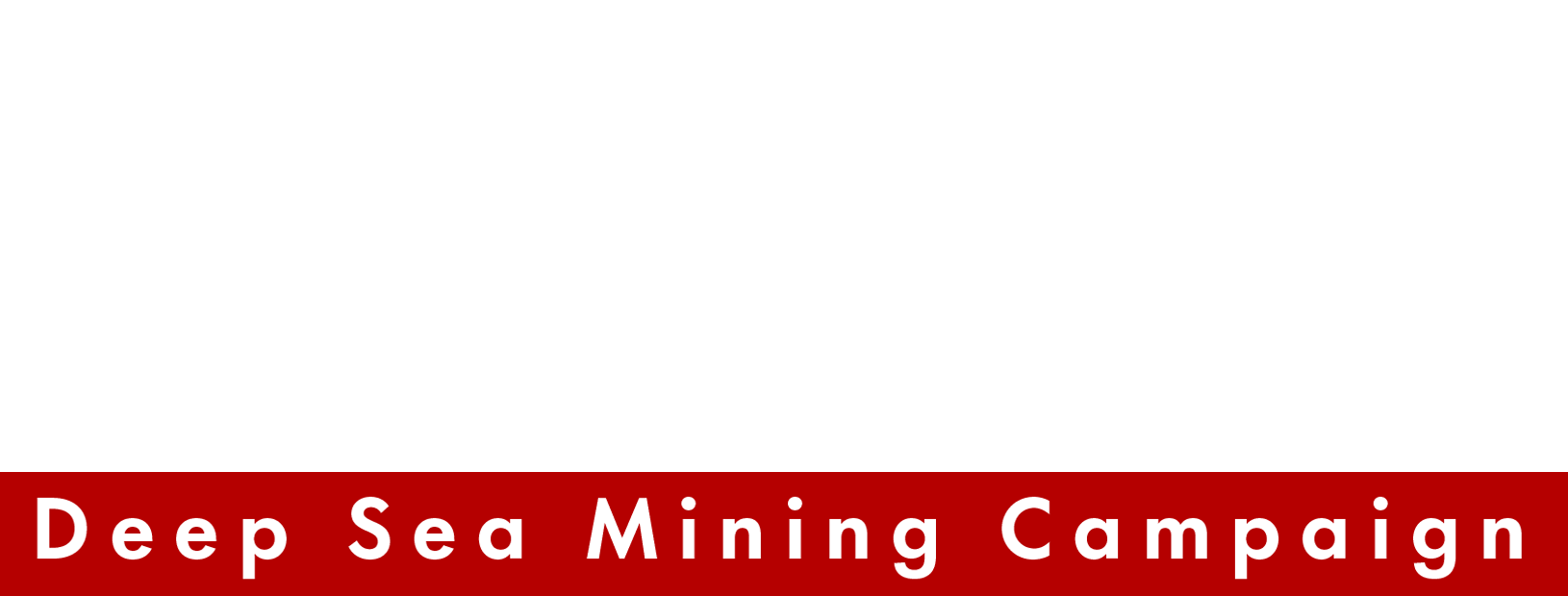MEDIA RELEASE
Tuesday 29th November 2016
The Sinking Titanic: International Seabed Authority and Mining the Common Heritage of Humankind
NGOs and civil society from Papua New Guinea and around the world challenge the development of regulations[1] for deep sea mining by the International Seabed Authority (ISA). Their call for a ban on this frontier industry highlights the need for debate on progressing deep sea mining when alternatives are available.
Natalie Lowrey, Deep Sea Mining campaign stated, “The development of regulations for deep sea mining is akin to loading more passengers onto a sinking Titanic. Report after report[2] demonstrate that the world’s oceans are already on the brink of peril. Recent research from the MIDAS consortium indicates a concrete risk that deep sea mining would lead to serious irreversible harm. The ISA is paving the way for yet another assault upon our oceans – an unprecedented and unnecessary assault.”
The Deep Sea Mining campaign made a joint submission to the ISA on the draft framework for the regulation of deep sea mining in May 2015. The submission highlighted that decisions on deep sea mining should be underpinned by implementation of the Precautionary Principle[3], achieving Free Prior and Informed Consent (FPIC)[4], and gaining broad civil society support.
“Our current submission reflects our disappointment that these critical elements have been ignored in the draft regulations now produced by the ISA. Without them there should be a complete ban on deep sea mining”, continued Ms Lowrey.
The call for a ban on deep sea mining reflects the views of communities in Papua New Guinea and across the Pacific. Opposition to deep sea mining throughout the Pacific is strong and growing[5].
Christina Tony, from the Bismarck Ramu Group in PNG said, “The oceans are part of our Common Heritage. The ISA’s prime mandate is to protect the deep sea (Article 145, UNCLOS). Where is the discussion on needs-based mining vs profit-based mining?”
“In Papua New Guinea and across the Pacific we do not see experimental seabed mining as a need for our communities nor a benefit for humankind as a whole. In PNG, and across the world, we already have plenty of land based mines and they have plenty of problems.”
“Enough is enough!” stated Jonathan Mesulam from the Alliance of Solwara Warriors. “People from the Pacific are custodians of the world’s largest oceans and it is these oceans that connect everyone in the Pacific. The oceans are as important as land as sources of food and livelihoods, they are of strong cultural and spiritual importance. Experimental seabed mining threatens this.”
“There are alternatives to extracting minerals resources from our oceans, these include the improvement of product design and the reuse and recycling of materials through processes as urban mining”, said Ms Lowrey.
“There is yet to be a rigorous and thorough examination of the potential impacts of deep sea mining on the environment and human health. Deep sea mining should therefore not proceed.”
Download the Deep Sea Mining campaign submission to the ISA
For more info:
Papua New Guinea:
Jonathan Mesulam, mesulamjonathan@gmail.com +675 70038933, Alliance of Solwara Warriors
Christina Tony, chrisamoka20@gmail.com +675 70942439, Bismarck Ramu Group
Australia:
Natalie Lowrey, natalie.lowrey@gmail.com +61 421226200, Deep Sea Mining Campaign
______
NOTES
[1] Comment by ISA members and stakeholders closed to the initial working draft regulations and standard contract terms on exploitation for mineral resources on Friday 25 November 2016. The purpose of the comments is so the Commission can get the “views and opinions on the content and structure (as opposed to any fine-tuning of the drafting language) of the working draft from the Authority’s stakeholder base. These views will be presented to the newly elected Commission in February 2017 together with a revised working draft. It is intended that the next Commission will formulate a clear methodology with regards to the elaboration of the Mining Code, timelines and stakeholder contribution in the regulatory content and drafting process in connection with regulatory development.” https://www.isa.org.jm/news/deadline-comments-working-draft-exploitation-regulations-extended
[2] Reports include: World Wildlife Fund (WWF) Reviving the Ocean Economy (2015) and The Living Planet (2016); International Union for Conservation of Nature (IUCN) State of the Ocean (2013) and Explaining Ocean Warming (2016); and the United Nation’s World Ocean Assessment 2016 which is a global inventory of the state of the marine environment and problems threatening to degrade the oceans.
[3] The United Nations World Charter For nature (1982) states that the precautionary principle requires that “activities which are likely to pose a significant risk to nature shall be preceded by an exhaustive examination; their proponents shall demonstrate that expected benefits outweigh potential damage to nature; and where potential adverse effects are not fully understood, the activities should not proceed.”
[4] Free Prior and Informed Consent (FPIC) currently exists in many international law instruments. It is most clearly articulate in UN Declaration of the Rights of Indigenous Peoples (UNDRIP, 2007). The Deep Sea Mining campaign calls for FPIC to recognised and extended to the Common Heritage and Benefit of Mankind including our international oceans.
[5] Lutherans Walk 9 days Across Highlands Region Campaigning Against Deep Sea Mining in Papua New Guinea, EMTV and VIDEO: Lutherans Campaign Against Deep Sea Mining in PNG, EMTV online.



Recent Comments